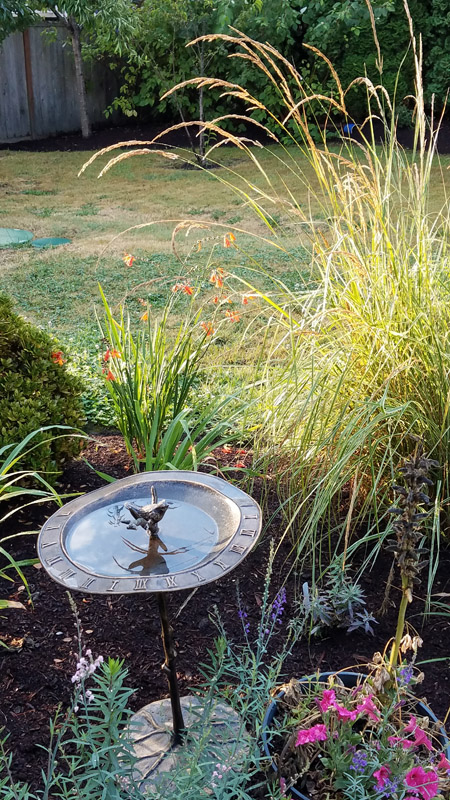Will Self challenged those of us attending his Arvon masterclass to “take your readers by the hand and walk them through place and space with you.”
After introducing us to some of literature’s great psychogeographers – Dorothy Wordsworth, Virginia Woolf, Thomas de Quincey – he walked us through a landscape portrait of his own.
His 3,000-word piece perambulates the Hoo peninsula, specifically the Isle of Grain, at the mouth of the River Thames. We encounter avocets and gulls. We meet Charles Dickens’ characters and Dickens himself – walking hours in search of physical peace and mental gymnastics. Will Self feels free to use high-flown words – glaucous, bedizened, mythopoeic, and tetralogy – if they help him ground his readers in muddy flats and salt-smacked breezes. Not many of us would think to do so. (And I suspect still fewer of his pupils would expect our efforts to get past the editor’s desk unscathed.)
What is the point of writing about place?
In Will Self’s view, and I daresay that of other literary gurus, humans have for millennia told stories of gods and metaphysics. Who are we? Why are we here, and what is our purpose? Such stories lift up the mind.
And then there are stories to fill the belly. These are hunter-gatherer stories. After all, you must be able to tell your mates back at the cave where you found the tasty berries. If you can’t communicate – in word-pictures of places – where the watering-hole and edible animals are, which hazards of landscape or ferocious beasts to avoid on your way there – you’ll all go hungry.
Furthermore, if you can’t orientate yourself in space, how will you know to direct them southwest, not west? How long will you tell them to walk? What landmarks have you absorbed to guide them?
The master, having set out his market stall, enjoins his pupils to go forth every day and soak it all in. By which he means: Go outside, expect nothing, and experience everything. And write it down in your little Moleskine notebook, not your phone or tablet. He urges us to be as tactile in our writing as in our snuffling the plants and handling the neighborhood stones. Breathe the air, listen to what’s out and about in it, and don’t forget to look up at the sky.
I didn’t know (who would?) that Self has multiple color-blindness deficiencies in his sight. So who else would think to tell us to pin a note to the top of our drafts reminding us to capture the elements we usually forget? His says: Colour! Mine might say: Sounds – I must turn roundabout to hear with my good ear what my bad ear lets slip by.
And so into the wilderness – the garden
Halfway through the class, Self – as good as his word – sends us out-of-doors, that notebook in hand. Our instruction, in 20 minutes or so, is to capture something, perhaps a story, about our environs. I’m impressed that Londoners and Scots alike – after their suppers and with dark coming down – went willingly forth. I had only to step into my soporific midday garden, dozing in August noon heat. And this is the ‘find the food’ story I wrote in an hour, based on 20 minutes of notes.
Birdfood in the Garden
I went outside into the August noonday warmth to follow the shrill whistle of the flicker. Two pairs live in the lofty pinewoods of The Priory. They come down to my sunny patio a few times a day, in hopes I’ve put out peanuts or perhaps a smear of peanut butter on the trunk of the chokecherry tree.
The air is pellucid, if not shimmering, with heat, easily conveying the distant thrum of traffic on the interstate less than a mile away. It actually sounds like ocean surf, a constant, not very rhythmical, wash of white noise, the hiss of a conch shell held to the ear.
That association makes me think of Arthur Ransome’s description of Caribbee island surf breaking ceaselessly on the rocks outside Peter Duck’s pocket-sized harbour. It’s loud enough to make conversation a little difficult. In the yard behind my house, beyond the musky-scented cedar hedge, two men discuss fruit trees. One sounds like an expert, but I can only make out the words with plosives: prune, plum and pear. One of the three is a verb. A single-engine plane overhead adds a (literally) higher note to the conversation, but it motors quickly out of earshot behind me, heading due west to the tiny local airstrip.
Once it is gone, I can hear a drip-drip-drip somewhere nearby. Another neighbor has added a small fountain to her garden, I guess. Or is it leftover spill from my own morning attentions to the upper tier of the birdbath, water pattering down to the lower basin?
I smear the chokecherry’s trunk with my spatula-load of cheap peanut butter, and pivot on the pebbled path, adding the crunch of gravel to the soundscape. I pass under the roseless pergola, denuded thanks to overly aggressive pruning on the part of my own hired-help gardener. Of the three roses planted here, two are gone, one just barely hanging on. Most of its canes are dead and brown, awaiting fall cleanup – and then it will be gone, too. The smell is of woodchip-dust, not attar of roses.
I crunch along the path. Most of the June blossoms are gone, in great part following the first heat-dome in July. It took out the purple and yellow irises, even though their feet stand in the winter-wet bog-garden: they exist now only in memory until next June. The second heat wave, last week, dried to pastel the yellow stars of tomato plants and the pink trumpets of petunia and sweet-peas. Under the shade of the chokecherry tree, in the southwest corner of the garden and atop the modest slope feeding the bog, flowerheads on two hydrangeas have survived. One is massively purple and blue, the smaller, shy one is pinky-lavender. I must not be feeding them right: each big plant has only one flowerhead.
Here, too, the gardener’s careless hand has cost me plants – three paeonies, which should have been pink Mamie Eisenhower and pink-tipped white Sarah Bernhardt. All gone, buried under a Pompeii-like coating of mulch. Yes, the stuff – applied a year or more ago – kept down the weeds, but it also squelched these ladies’ will to live.
I continue crunching down the path, till – two steps from the patio – I startle myself. I expected my full-length reflection in the floor-to-ceiling windows of the sunroom’s window-wall, but I’d forgotten the cheap mirror I’d propped up to reflect a stone cat, sternly guarding the far side of the bog. More sweetly, the glass reflects a semi-circle of potted plants framing a stone birdbath. This one’s at ground level, more for the rabbits and frogs and squirrels than the birds.
Further down the path – two steps from the patio – I startle myself, stopping in my tracks. I expected my full-length reflection in the floor-to-ceiling windows of the sunroom’s window-wall, but I’d forgotten the cheap mirror I’d propped up to reflect a stone cat sternly guarding the far side of the bog. More sweetly, the glass reflects a semi-circle of potted plants framing a stone birdbath. This one’s at ground level, more for the rabbits and frogs and squirrels than the birds.
A chickadee flitters down from an overgrown dogwood, one of the few plants that has survived, even defied, the gardener’s whims to thrive. It lands on the iron shepherd’s crook supporting a pair of glass jars repurposed into bird-feeders. It cocks its head, tsks-tsks, and selects one of the last sunflower seeds on the tray of the left-hand feeder; the right-hand one is already empty. I refill them only as autumn’s bounty thins out, usually in October. Its mate doesn’t even bother leaving the tree – it tsks its disgust and takes off again.

I pull off my sunhat, but very little breeze lifts my hair. The head-height ornamental grasses are still, blondes posing for a painting, not tossing their hair for a photograph.
I, too, am standing very, very still. A ruby-throated hummingbird swoops past me as if I’m invisible, on its way to inspect the bee-bedecked Joe Pye Weed. But give a bird credit: the hummer knows I’m here. I’m just no more nor less important to her business than the grasses, the stone cat, or the empty bird feeders.

